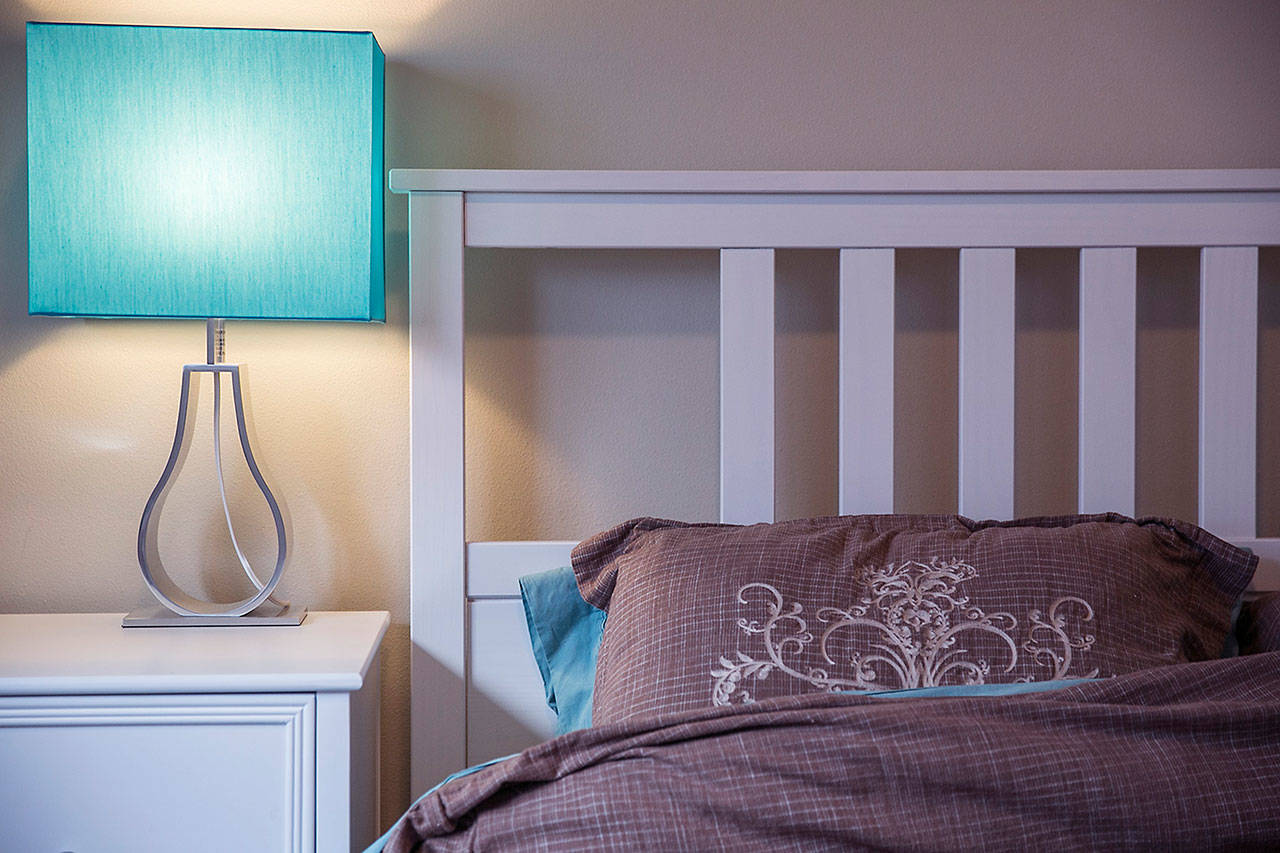By Terry Silvestrin, ARNP, MultiCare Health System
Peri- and post-menopausal women don’t often complain about poor sleep, according to menopause specialist Terry Silvestrin, ARNP.
“They don’t complain because they’ve come to expect it,” she said.
But that’s just the kind of stoic resignation Silvestrin said puts women’s health and well-being at risk.
“Sleep disruption can be one of the most disturbing symptoms of menopause,” Silvestrin said.
Women suffering from disrupted sleep find it more difficult to focus at work or at home.
“It gets to be a vicious cycle,” she said. “As it keeps going, it affects your work, your personal relationships, your sexuality. It can affect moods and it can become a safety factor when women are driving while very groggy in the morning.”
So what’s a woman to do? It starts with identifying the factors contributing to sleep disruption. One of the classic menopausal symptoms that affects sleep is the “hot flash” or night sweats.
“You can’t control a night sweat, but what you can do is change the environment to be more restful,” Silvestrin said. “Wear less to bed so you’re not going to get as overheated. Get a personal fan and direct it on you so it’s not disturbing your partner.”
If it’s safe, open a window, she advises. And when you do get hot, uncover your head and feet, even though those aren’t the only parts of your body that get overheated.
“If your head and feet are uncovered, you’re going to cool off the fastest,” Silvestrin said.
Cooling pillows and mattresses also help, but sometimes it’s not enough.
“I literally have women tell me, ‘I jump out of bed, fling the back door open and walk outside and I’m naked,’” she said.
If night sweats and temperature-related sleep disturbances are that persistent, Silvestrin suggests considering hormone replacement therapy. And if you’re skeptical, she urges women to talk to their doctors and learn more about hormone replacement before dismissing it out of hand.
“Menopausal hormone therapy can play a real relieving role,” she said. “You don’t have to be scared of hormone therapy anymore.”
Absent specific risk factors, hormone replacement can be an effective tool for many women, at least for a time.
“You may need it now, you may not need it in a year,” she said. “Nothing is forever.”
Aside from temperature spikes, the menopausal years also seem to see an increase in general anxiety for women, who are often still caring for children in the home while also facing the responsibility of their own aging parents and increased work responsibilities.
“What women are doing far too often is simply too much,” Silvestrin said. “There’s an inability of the mind to shut off.”
Silvestrin recommends keeping a set sleep schedule, turning of electronics at least an hour before bedtime and making sure alarm clocks aren’t easily viewed. Seeing the minutes tick by can making sleep even more elusive. Drink plenty of water and avoid caffeinated beverages after dinner. And definitely don’t have that heavy discussion with your spouse just before bedtime.
Over-the-counter medication can help, too, Silvestrin said. Melatonin is an herbal sleep aid that helps some women. Benadryl can also help, but you have to take it well before bedtime or you’ll wake up groggy. Silvestrin said these medications aren’t habit forming.
For those with the most serious sleep problems, prescription sleep aids are available, but should be used only once or twice a week, Silvestrin advises. She also advises taking them only when you have an especially important event the next day, and acknowledges that it’s easy to fall into a habit of using them nightly.
“They have dependent, addictive potential,” she said. “If you’re not sleeping, you’re not thinking well and you’re also not safe.”
For some women with anxiety, panic attacks or OCD symptoms, antidepressants can provide the sleep relief they need. The key is talking frankly and honestly with your health care provider, Silvestrin said.
Finally, Silvestrin said more women should probably get sleep study referrals for sleep issues during menopause, to determine if there are other issues at play.
“We can find out if other factors affecting sleep beyond menopause disruptions are hindering a good night’s rest, such as lack of oxygen,” she said.
Regardless of what’s keeping you up at night, Silvestrin said you don’t need to suffer in groggy silence.
“Quality of life is the bottom line, from my perspective,” she said.
Terry Silvestrin, ARNP, is a nurse practitioner and certified menopause clinician with MultiCare Health System, a not-for-profit health care organization with more than 18,000 employees, providers and volunteers.



